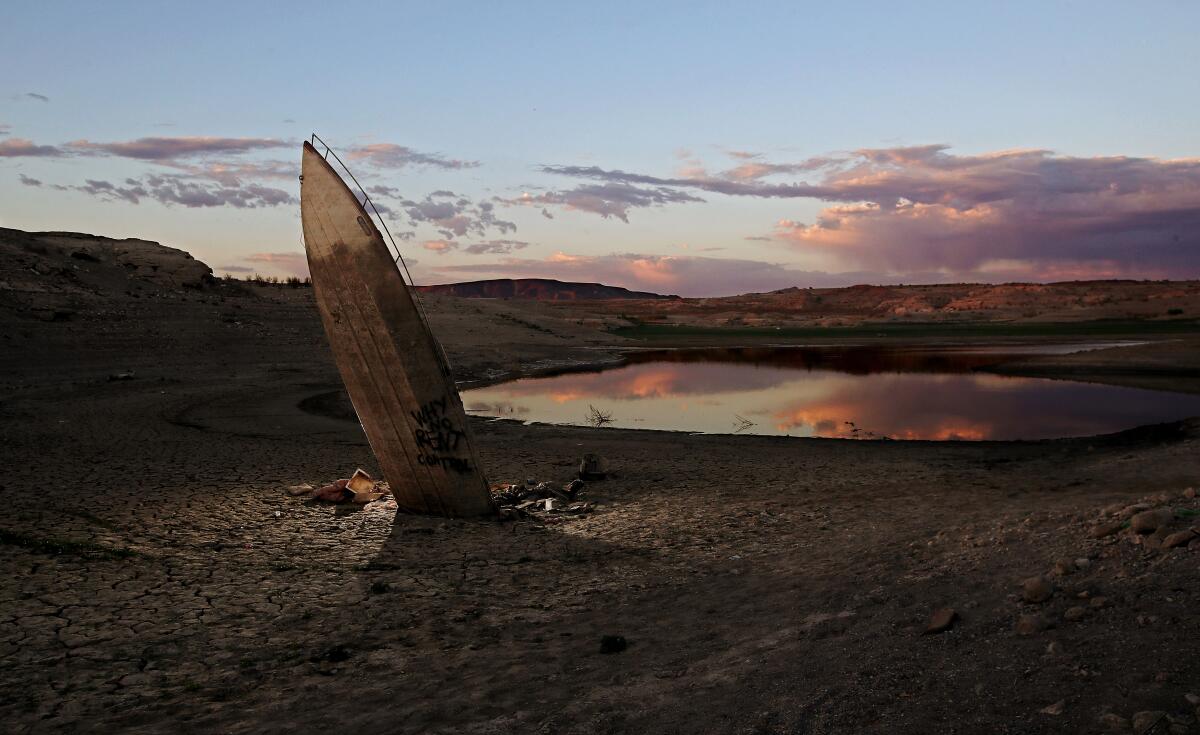Letters to the Editor: ‘Toilet to tap’ is badly needed. Get over the yuck factor

- Share via
To the editor: Saving water is indeed not enough, but not in the way the state means it. What is needed is a whole new way of thinking, a paradigm shift that will involve not only infrastructure improvements but also, most crucially, water recycling. (“California is finally reducing water use, but it’s not enough amid severe drought,” July 8)
Recycling is the only way to ensure that California and other affected states have a secure and lasting water supply for an inevitably hotter, dryer future — an ongoing, permanent drought, if you will.
Consumers, for their part, must overcome their reluctance, stemming from the so-called yuck factor, of using recycled potable water. Orange County has been doing this for decades, providing safe, healthy, good-tasting tap water without experiencing consumer complaints.
If we don’t take such action, Lake Mead, Lake Powell and Lake Oroville will eventually become dead pools waiting to be completely dry, and that is a catastrophe nobody wants.
Kenneth Canatsey, Agoura Hills
..
To the editor: Recently I reported water waste at a commercial property. Five days in a row while on his daily walk, my husband found water gushing into the gutter.
While making my report I mentioned that my husband saw two fire trucks releasing water into the gutter. I told the person taking my report that releasing that water onto a park lawn would have served a better purpose. She personally concurred with my opinion and said that unfortunately there were instances where nothing could be done, and that was one of them.
So, what can city agencies do so they no longer waste water like that?
Rosa Carrillo Coronado, Panorama City
..
To the editor: No matter how many articles I read about the drought, very few of them contain a reference to any possible solution to this crisis except conservation. We certainly need to conserve, but what are state and local governments doing to find alternate sources of water?
I grew up close to the Great Lakes, and the water table was so high that my parents needed a pump in the basement to keep the water out. Surely some folks in the Rust Belt would be happy to export some of their water to the thirsty West — for a price, of course.
Aqueducts? Pipelines? Trucks? Trains? Desalination plants? All one hears about the latter is that they use energy. Everything uses energy, and it looks like we aren’t going to get our reservoirs filled without it.
If close to 40 million people wish to continue living in California, we had better find some water, and soon. Or maybe we should call a rainmaker.
Mary Lambert, Los Angeles
..
To the editor: I live in northeast Los Angeles. I received my last bill from the Department of Water and Power after the new restrictions had gone into effect. That bill contained zero information on water conservation — not which days I could water, not how much, not why I needed to conserve, not a note, not a form letter, nothing.
If I didn’t read The Times carefully, I would have no information about how to conserve. If the DWP is actually serious about asking us to conserve water, it needs to do a much much better job informing citizens how they can save water.
Anne Beaty, Los Angeles




